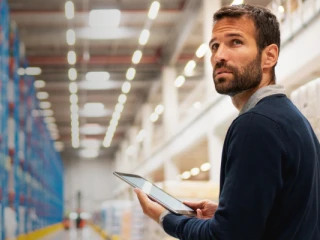Success Stories
These are the three companies (and technologies) with whom we had turn ideas into actionable innovations in past runs of DEL20:
De Watergroep (Advanced Analytics): De Watergroep provides drinking water to millions of Belgium citizens. During DEL20, De Watergroep trialled advanced analytics to solve one of its main challenges: water leaks on the distribution network, causing up to 20% of wastage. The company tested and elaborated an algorithm on data from past leaks. Based on the insights generated, notifications are sent to the right people at the right time to take appropriate action to reduce water waste, with immediate benefits, both economically and ecologically.
Cartamundi (AI): The world leader in playing cards and board games, experimented with AI to maximise SAP usage and efficiency by proposing new functionalities to guide its customers. The core deliverable was a recommendation engine that uses the ‘collaborative filtering technique’ to extract industry insights from SAP data.
Bekaert (Robotic Process Automation): As a world-leading company in steel wire transformation and coating technologies, Bekaert works with numerous suppliers worldwide, renewing no fewer than 3,500 supplier contracts every year. The company explored robotic process automation (RPA) to handle routine tasks in its procurement chain to reduce the lengthy administrative process. While bots take care of contract lifecycle management, buyers can focus on other value-added activities resulting in overall cost savings and efficiency gains.
/DEL20-DSG-720x360-(1).webp?mode=autocrop&w=320&h=320&attachmenthistoryguid=97a5f3af-5b5e-4e69-ae7e-734a07f7298c&v=&focusX=355&focusY=134&c=177bfa8fdabe9978117a727cebaf5e6e250e83b671901736f62ef55fec96210b)


